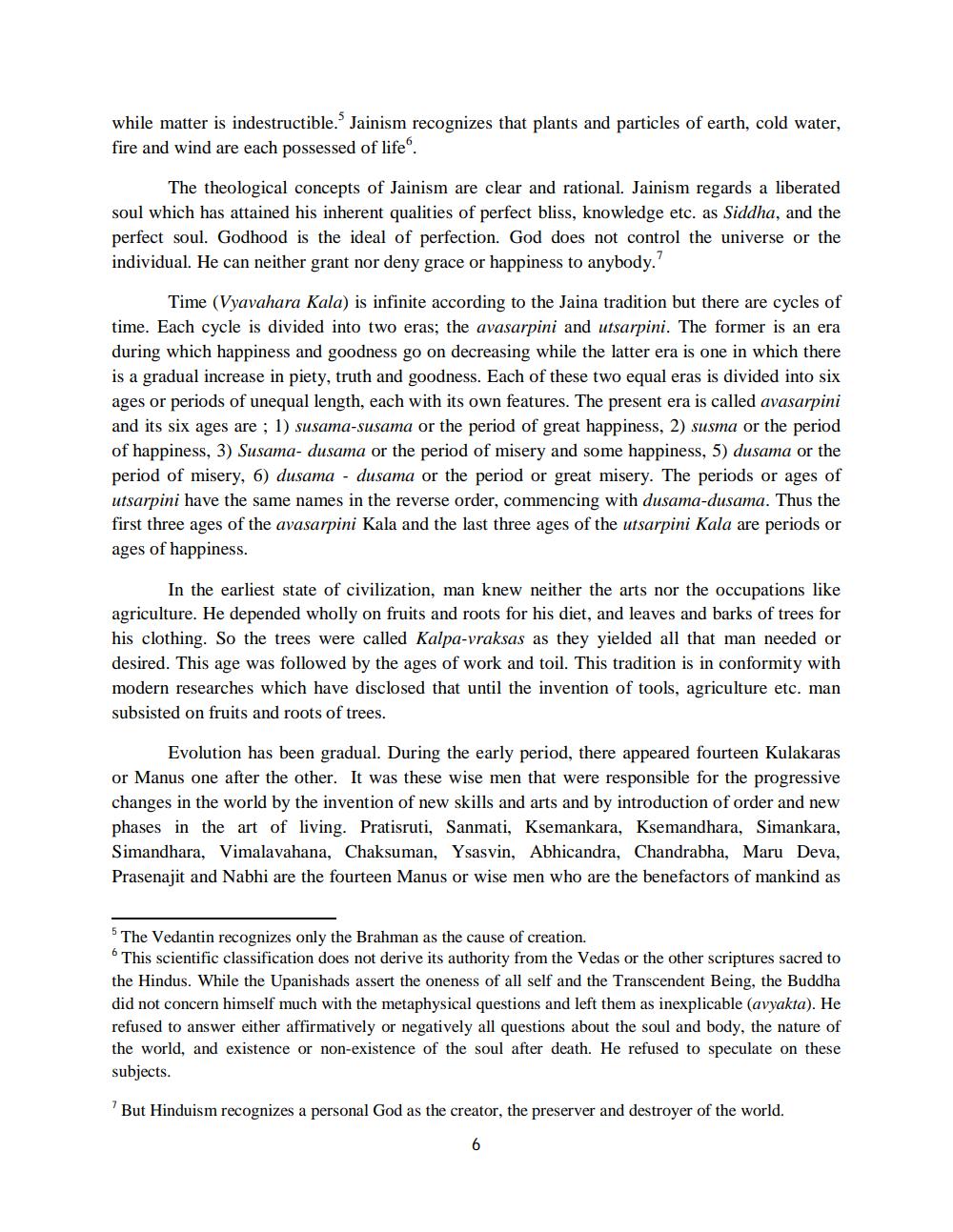Book Title: Basic Principles Of Jainism Author(s): Narayan Lal Kachhara Publisher: Narayan Lal Kachhara View full book textPage 6
________________ while matter is indestructible. Jainism recognizes that plants and particles of earth, cold water, fire and wind are each possessed of life". The theological concepts of Jainism are clear and rational. Jainism regards a liberated soul which has attained his inherent qualities of perfect bliss, knowledge etc. as Siddha, and the perfect soul. Godhood is the ideal of perfection. God does not control the universe or the individual. He can neither grant nor deny grace or happiness to anybody. Time (Vyavahara Kala) is infinite according to the Jaina tradition but there are cycles of time. Each cycle is divided into two eras; the avasarpini and utsarpini. The former is an era during which happiness and goodness go on decreasing while the latter era is one in which there is a gradual increase in piety, truth and goodness. Each of these two equal eras is divided into six ages or periods of unequal length, each with its own features. The present era is called avasarpini and its six ages are ; 1) susama-susama or the period of great happiness, 2) susma or the period of happiness, 3) Susama- dusama or the period of misery and some happiness, 5) dusama or the period of misery, 6) dusama - dusama or the period or great misery. The periods or ages of utsarpini have the same names in the reverse order, commencing with dusama-dusama. Thus the first three ages of the avasarpini Kala and the last three ages of the utsarpini Kala are periods or ages of happiness. In the earliest state of civilization, man knew neither the arts nor the occupations like agriculture. He depended wholly on fruits and roots for his diet, and leaves and barks of trees for his clothing. So the trees were called Kalpa-vraksas as they yielded all that man needed or desired. This age was followed by the ages of work and toil. This tradition is in conformity with modern researches which have disclosed that until the invention of tools, agriculture etc. man subsisted on fruits and roots of trees. Evolution has been gradual. During the early period, there appeared fourteen Kulakaras or Manus one after the other. It was these wise men that were responsible for the progressive changes in the world by the invention of new skills and arts and by introduction of order and new phases in the art of living. Pratisruti, Sanmati, Ksemankara, Ksemandhara, Simankara, Simandhara, Vimalavahana, Chaksuman, Ysasvin, Abhicandra, Chandrabha, Maru Deva, Prasenajit and Nabhi are the fourteen Manus or wise men who are the benefactors of mankind as The Vedantin recognizes only the Brahman as the cause of creation. This scientific classification does not derive its authority from the Vedas or the other scriptures sacred to the Hindus. While the Upanishads assert the oneness of all self and the Transcendent Being, the Buddha did not concern himself much with the metaphysical questions and left them as inexplicable (avyakta). He refused to answer either affirmatively or negatively all questions about the soul and body, the nature of the world, and existence or non-existence of the soul after death. He refused to speculate on these subjects. But Hinduism recognizes a personal God as the creator, the preserver and destroyer of the world.Page Navigation
1 ... 4 5 6 7 8 9 10 11 12 13 14 15 16 17 18 19 20 21 22 23 24 25 26 27 28 29 30 31 32 33 34 35 36 37 38 39 40 41 42 43 44 45 46 47 48 49 50 51 52 53 54 55 56 57 58 59 60 61 62 ... 106
